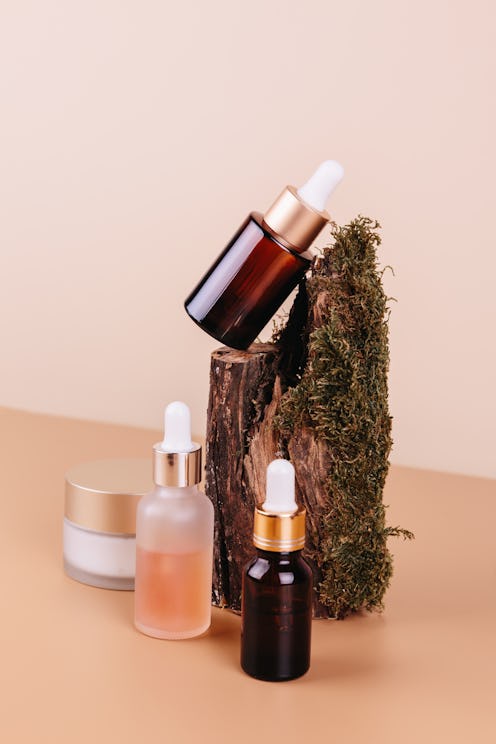Beauty
The Right — & Wrong — Way To Recycle Your Beauty Products
Steps you can take to make sure your cosmetics don't end up in landfill.

The beauty industry's impact on the environment is something we've all become more conscious of in the last year or so. Beyond the stats – which we will come to – there remains the fact that many of us are unsure of how to recycle our beauty products. So, how do you recycle beauty products responsibly in the UK?
According to a campaign by Zero Waste Week, more than 120 billion units of packaging are produced globally every year by the cosmetics industry alone, most of which is non-recyclable packaging. However, there have been some considerable changes in recent years, including some brands switching to biodegradable plastics and the successfully banning of microbeads in wash-off cosmetics products in the UK in 2018. But, there's still a long way to go.
For the slowly increasing percentage of beauty products that can be recycled, it's important we know how. While we're paying more attention to the ingredients that are in our makeup bags and bathroom cabinets, many of us still aren't sure how to dispose of empty products properly. (It wasn't long ago that I learned that beauty products have an expiry date, so there's much learning to be done). In fact, Garnier research found that just 56% of us recycle in the bathroom, compared to 90% in the kitchen.
Can you recycle beauty products with your household waste?
Ok, so you've mastered kitchen recycling, and yet, you're still unsure what to do when it comes to recycling bathroom items. I hear you. It will take some extra time to start with, before you become familiar with your usual products, but as with everything it's worth paying close attention to the labels.
According to Recycle Now, most plastic bottles that contain shampoo, conditioner, shower gel, and moisturiser etc. can be recycled in your normal recycling bin. Make it a habit to check for the green recycling symbol on plastic bottles, clean them out when empty, and replace the lids. The same goes for most aerosols, once completely finished, they can be tossed out with the rest of your recyclable empties. Glass jars can also be recycled, although I love using these to hold loose jewellery — upcycling for the win.
This may come as a surprise, but you can also recycle cotton pads. While you should never flush them, you can add used pads to your food waste bin.
Are there any beauty products you can't recycle?
Yes. There are many products that can't be recycled – it's important to take note of the ones that typically end up in landfills, and try to buy less of these. Lipsticks, nail varnish bottles, toothbrushes, and makeup brushes are just a few cosmetic items that can't be recycled from home. However, some brands, such as The Body Shop and M.A.C , offer a return to store policy and will recycle these type of empties for you. Find out more about the Back To M.A.C initiative, here (you can even bag a free lipstick in the process).
Note: dispenser pumps, typically found in skincare bottles and hand washes, can't be recycled either, so make sure you remove them before you sort your recycling piles.
What do I do with beauty products that can't be recycled?
If you're reading this thinking 'it all sounds too complicated for me', then I have a one-stop recycling option for you.
Recycling company TerraCycle UK accepts most makeup waste (with some omissions) and has a variety of free and paid programmes to help you recycle nearly everything. They've recently partnered with Maybelline to create1,000 makeup drop-off points across the country, you'll find them in Tesco, Sainsbury's, Superdrug, and Boots. Per the BBC, they accept compacts, eyeshadow palettes, foundation or concealer tubes, mascara, eyeliner, and lip products. With the help of TerraCycle, Maybelline will then recycle your empties correctly.
Which beauty brands recycle packaging for you?
Alongside the TerraCycle and Maybelline initiative, there are other brands helping ethically minded customers to recycle cosmetics in the UK. The Body Shop, & Other Stories, Kiehl's and John Lewis all welcome in-store recycling. A lot of the time, there's a product-based incentive for taking them up on this offer, too – for example, L'Occitane, who also partnered with TerraCycle in 2019, offer 10% off a new full-price product when you recycle its packaging in store. Or, if you're looking to stay as plastic-free as possible, Lush run some of the UK's first plastic-free stores.